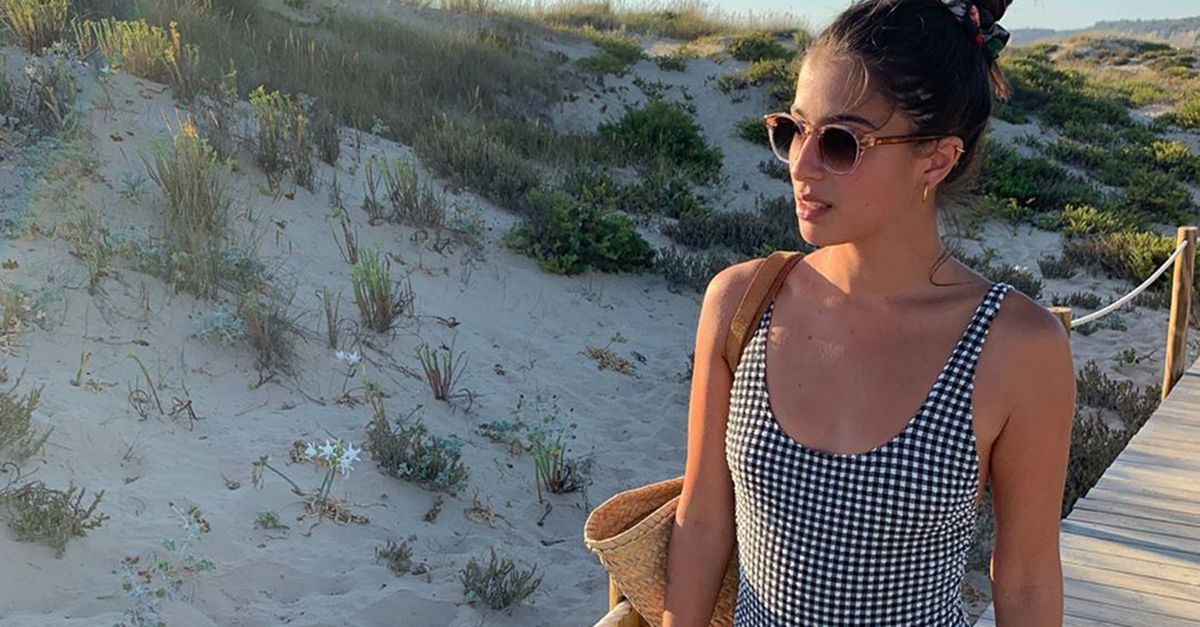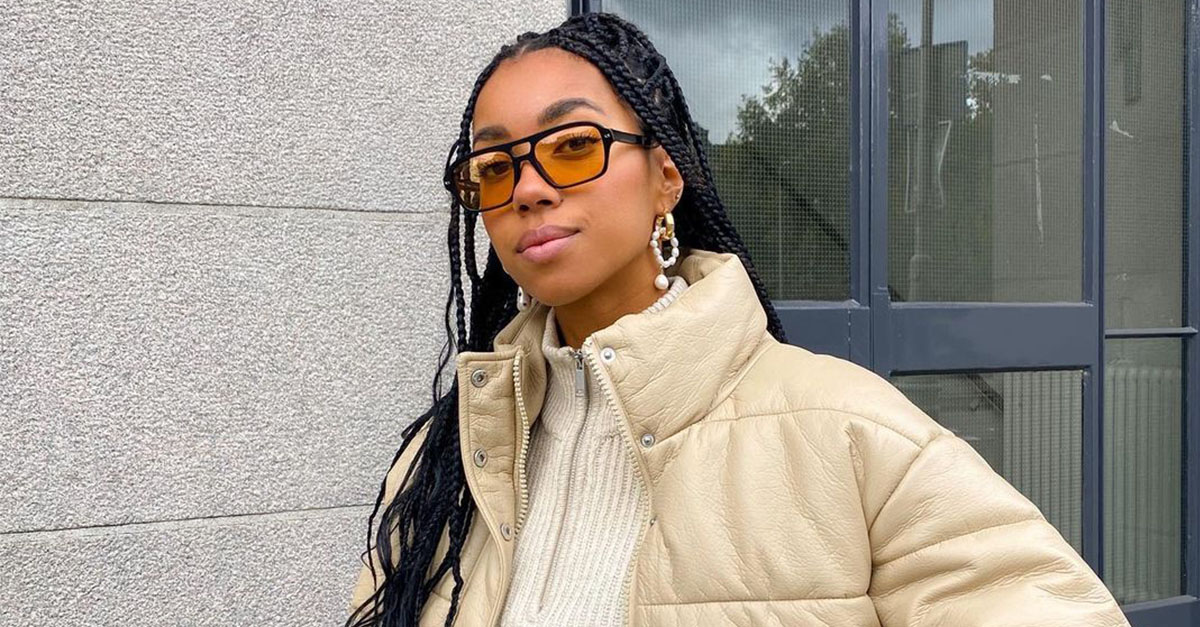I Realized I Knew Nothing About Sunscreen, so I Got Dermatologists to School Me
I learned so much.

Ever since I turned 30, I've been slightly fixated on learning all I can about skincare and doing all I can to make sure my skin is at its healthiest. And it's not all about anti-aging or fending off wrinkles. In fact, turning the big 3-0 made me really rethink my overall health. Now that I'm about five months into my 31st year, I feel like I've made some progress on this goal. I've been stepping outside of my fitness comfort zone (aka indoor cycling and barre) and trying new workouts. I've made it a priority to eat better but also allow for some fun every now and then. I've been taking care of and paying attention to my mental health more. And I've been taking in all the skincare knowledge that I can.
One thing I realized I knew only the bare minimum about was sunscreen. Sure, I knew it was a vital skincare product. I applied it diligently every day, and when I was at the beach or by the pool, I would constantly reapply. But I really had no idea about the differences in sunscreen types and ingredients or what SPF levels really meant.
So I reached out to two dermatologists to get some answers. Here's a very general breakdown:

Heather D. Rogers, MD, founder and CEO of Doctor Rogers Restore and co-founder of Modern Dermatology in Seattle, says that when talking about sunscreens, there are two types: chemical and mineral protection. Rogers says mineral sunscreens, like zinc oxide and titanium dioxide, are natural and nontoxic. These sit on top of your skin and block the skin like reflectors. Chemical sunscreens—oxybenzone, octinoxate, octisalate, and avobenzone—on the other hand, are absorbed into the skin before they can protect from the sun's radiation. She says that the ingredients absorb the sun's rays and convert them into heat that is released from the skin.
While Rogers says that chemical sunscreens provide good UVA and UVB protection and are better than not using anything, they do get absorbed into your body. "We can measure them in our blood and urine," she explains. "Even though they are well-studied, labeled by the FDA as nontoxic, do not cause cancer (despite some reports out there), and have NOT been shown to cause hormone disruption in humans, they do accumulate in us. I would like to minimize the accumulation of any unneeded chemicals in my body, my patients' bodies, and in our world, whenever possible. Further, avobenzone is a common cause of sunscreen allergy, and oxybenzone is contributing to the death of coral reefs."

When it comes to mineral sunscreens, Rogers prefers ones that contain zinc oxide because it protects against UVB rays (which cause burns) and UVA rays (which can come through windows and cause brown spots and wrinkles). "Titanium dioxide is another good physical sunscreen, but it only protects from UVB rays, so products need to have both titanium dioxide and zinc oxide to provide broad-spectrum protection," she explains.

I've always reached for the higher SPF because I always thought the bigger number, the better, but I didn't really understand the science behind it. "Dermatologists recommend using a sunscreen with an SPF of at least 30, which blocks 97% of the sun's UVB rays," says Ellen Marmur, MD, a board-certified dermatologist and founder of Marmur Medical in New York City. "The higher-number SPFs do block the sun's UVB rays slightly more. Of course, it's important to remember that even high-number SPFs need to be reapplied throughout the day."
And Rogers adds, "SPF only describes protection from UVB rays, the sunburn rays that also damage your skin's DNA. UVA rays penetrate the skin more deeply, causing wrinkles and brown spots. Instead of looking for a product with the highest SPF, look for a product with at least an SPF of 30 that is also labeled broad-spectrum protection."

Rogers says finding one that is good for your particular skin type will take some hunting and experimenting. "If you have dry skin, look for formulations that have hydrating ingredients," she explains. "If you have oily skin, opt for something with a matte finish that's oil-free. If you have sensitive skin, mineral-based sunscreens are particularly important because the most common chemical sunscreens can be irritating, while zinc oxide is calming. Your sunscreen should be just that—sunscreen. You will still need to use an antioxidant and a moisturizer prior to its application. The all-in-one products never work as well as specialized products, with the exception that face sunscreen can also work as a light foundation."
And there's a common misconception that zinc sunscreens don't work well with sensitive or acne-prone skin. Rogers says that they're actually a better choice than chemical versions because they're a natural anti-inflammatory and are less likely to cause allergies.

I go back and forth between using lotion and spray on my body, so I wanted to know if there was a difference in effectiveness. It turns out it's mostly based on personal preference. "What is most important is for sunscreen to be applied daily and reapplied throughout the day to ensure your skin is consistently protected," Marmur says. "When using an aerosol sunscreen, I recommend holding the can about four to six inches from the body and slowly applying liberally onto the skin until it becomes visible. I would then gently spread the formulas to your neck, ears, chest, back, etc., to ensure you did not miss any sections of your body. When using a lotion body sunscreen, I would use a least a shot glass amount, and spread over the skin using circular motions."
And Rogers suggests you keep a variety of sunscreen products for different activities and different areas of your body. "You need the one you wear every day, the water-resistant one you use when you go to the beach or pool, the powder version you use on your hair part, and also to reapply during the day when you are wearing makeup," she explains. "I like my skincare products to be specialists. Often, the more a single product claims to do, the less likely it is to do all those things well."

First and foremost, both Rogers and Marmur recommended reapplying sunscreen every two to three hours when you're outside, even when it's cloudy.
For chemical sunscreens, you should apply before you put on moisturizer, as it needs to be absorbed into your skin, Rogers adds. As for mineral sunscreens, apply after your moisturizer but before your makeup.
And even if you're spending more time indoors, you still have to apply sunscreen, Marmur advises. "I have several patients who have shared with me that their melasma is actually getting worse, yet they have not been outside," she explains. "What we need to remember is that we need to wear sunscreen even inside our house because of the sun's harmful UVA/UVB rays. Even the blue infrared light emanating from our computer screens can cause damage to our skin!"
Now that we're all pretty well-versed in the general ins and outs of sunscreens, you might find yourself wanting to trade some of your bottles for new ones. Here are some of our favorites for the whole body, categorized by mineral and chemical.



















Next up, 17 sheer sunscreens that are actually sheer on black girls too.
This article was originally published at an earlier date and has been updated.

 Landwebs
Landwebs 






















